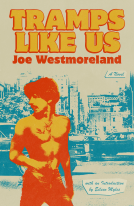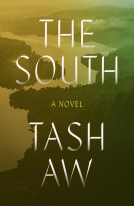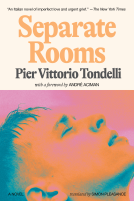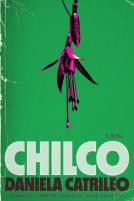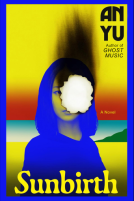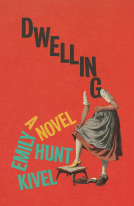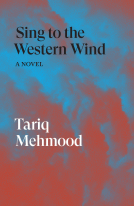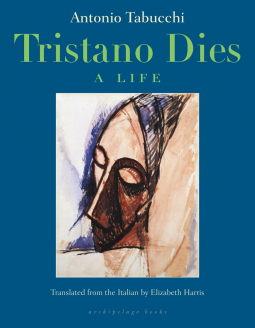
Tristano Dies
A Life
by Antonio Tabucchi
This title was previously available on NetGalley and is now archived.
Send NetGalley books directly to your Kindle or Kindle app
1
To read on a Kindle or Kindle app, please add kindle@netgalley.com as an approved email address to receive files in your Amazon account. Click here for step-by-step instructions.
2
Also find your Kindle email address within your Amazon account, and enter it here.
Pub Date Nov 10 2015 | Archive Date Sep 29 2015
Description
Advance Praise
"Tristano muore is a dark meditation on the approach of death in what he portrays as the difficult, even humiliating context of Italian culture today. Sometimes bitter but also frequently lyrical, this latest book by Tabucchi is deeply skeptical about the power of art to console the pangs of our mortality. Nevertheless, Tristano muore is a powerfully engaging and beautifully written novel that may come in time to rank as one of this author's best." -- Charles Klopp, World Literature Today
More Praise for Tabucchi:
"Tabucchi's work has an almost palpable sympathy for the oppressed." -- The New York Times
"[Tabucchi's] prose creates a deep, near-profound and sometimes heart-wrenching nostalgia and constantly evokes the pain of recognizing the speed of life's passing which everyone knows but few have the strength to accept ... Wonderfully thought-provoking and beautiful." -- Alan Cheuse, NPR's All Things Considered
"There is in Tabucchi's stories the touch of the true magician, who astonishes us by never trying too hard for his subtle, elusive and remarkable effects." -- The San Francisco Examiner
"The Woman of Porto Pim is one of the earliest texts in Tabucchi's impressive oeuvre, but it reads as the work of a mature author, one with the patience to listen to the small stories of others and tease out their greatness." -- World Literature Today
"The attraction here is not only a book which is laid out with grace and elegance, the Archipelago touch, but in Tabucchi's lovely style..." -- Oliver Morton, Ralph Mag
"What a strange and wonderful book [The Woman of Porto Pim] is! If, like me, you are interested in shipwrecks, whales, the Azores and the unique way in which only literature can bring a location to life, and if you like the unclassifiable, small works by authors such as Michael Ondaatje and Italo Calvino -- then have I got the book for you ... Wildly inventive." -- Minneapolis Star-Tribune
Available Editions
| EDITION | Other Format |
| ISBN | 9780914671244 |
| PRICE | $18.00 (USD) |
Featured Reviews
 Educator 211653
Educator 211653
Thank you Net Galley. A beautifully written book. It reminded me somewhat of Borges. The theme is old and one that I am not very fond of but Tabucchi makes up for it. A well written exploration of how important is context, memory and what constitutes courage.
 madeleine m, Reviewer
madeleine m, Reviewer
This is my first novel by Antonio Tabucchi.
First, I'd like to mention there is a touching story at the begining of this novel, about elephants...yes...elephants. Antonio Tabucchi worked magic introducing them along with his character Tristano. Although they are not in any ways part of this beautiful novel, they share Tristano's view of death.
As the novel begins, Tristano's life is coming to it's end, one last request remains. Our protagonist summons an author he keeps in high esteem, hired to transcribe his long life by proxy.
Tristano remembers his youth, wearing the enemy's uniform, Greece, Daphne, his love, life... it's simplicity it's challenges. Morphine for his pain, color his memories. Each memory carries subtle details, nuances unknown to the hired author, who continues to write what he hears, the soul of these words belonging to Tristano alone, not ever to be found on the finished memoir.
Such a beautiful novel, perhaps read slower in order to fully appreciate.
 Deborah C, Reviewer
Deborah C, Reviewer
4.5 stars
Antonio Tabucchi's Tristano Dies, beautifully translated from the Italian by Elizabeth Harris, is a dizzying stream-of-consciousness monologue by Tristano, who, as the title indicates, is dying from gangrene of his leg. Considered a hero for having single-handedly taken out an encampment of Germans during the World War II invasion of Greece, Tristano tells the "true" story to an audience of one, a writer who had previously written a complimentary novel based on Tristano's life. The truth, however, is not so easy to grasp; not only is Tristano taking large doses of painkillers (perhaps rendering him a less-than-reliable narrator), but he also moves back and forth through time with little or no warning, and all of the key characters he mentions have multiple names (his American lover is referred to variously as Marilyn, Guagliona, and Rosamunde, and she occasionally refers to Tristano as Clark, apparently because he resembles Clark Gable). Tristano himself brilliantly sums up the dilemma at the heart of his tale:
"But instead, the world's composed of acts, actions ... concrete things that then are gone, because, writer, an action takes place, it occurs ... and occurs only in that one precise moment, then disappears, is no longer there; it was. For an action to remain, it needs words, which continue to make it be, they bear witness. ... All that remains of what we are and what we were are the words we've said, the words you're writing down now, writer, and not what I did in that given place and that given time."
What power words have!
Tabucchi, through Tristano, returns to this theme - the unreliability of history as recorded by human words - again and again:
"[H]e didn't understand that we make history, that we build it with our own two hands, it's our own invention, and we could build another, if we just wanted to, if we just convinced ourselves that history, her story, is this or that, if we only had the strength to tell her, you're nothing, madam history, don't be so arrogant, you're just my hypothesis, and if you don't mind, madam, I'm going to invent you now as I see fit.
. . .
You came here to gather up a life. But you know what you're gathering? Words. No - more like air, my friend - words are sounds composed of air. Air. You're gathering air."
My only complaint, and a somewhat embarrassing one at that, is that the translator did not include translations of the many French phrases used by Tristano. It is a sad fact that most Americans are not multilingual, and even those of us who can muddle along with schoolhouse Italian and Spanish are defeated by French and German. I hope that, in the future, Archipelago Books will include such miscellaneous translations at least in endnotes. Although, come to think of it, Archipelago may have done this deliberately, hoping to draw English-speaking readers to discover such fabulous works as Tristano Dies in their native tongues.
I received a free copy of Tristano Dies through NetGalley in exchange for an honest review.



